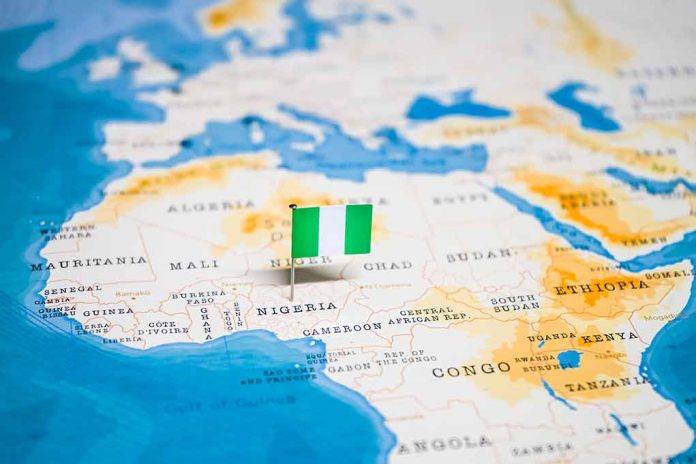
An alarming surge of violence against Christians in Bokkos County, Nigeria, intensifies cries for justice and intervention.
Key Takeaways
- Over 60 Christians were brutally killed by Fulani jihadists in Plateau State, Nigeria.
- Attacks targeted seven communities, displacing over 1,000 residents and destroying 383 homes.
- Governor Caleb Mutfwang describes the attacks as acts of genocide.
- International bodies condemn the violence, urging immediate intervention.
- Accusations linger about lack of government response, with many survivors now in IDP camps.
Violence Escalates in Bokkos County
The relentless attacks in Bokkos County, Plateau State, Nigeria, have left the region in turmoil. Fulani jihadists carried out systematic attacks in early April 2025, claiming over 60 Christian lives. These attacks, notably targeting Hurti village, show a distressing pattern of religious violence. Over 40 Christians were brutally slain in this single village alone, illustrating the dire situation on the ground.
International bodies, including International Christian Concern, have expressed outrage. They are now calling for countries worldwide to aid in stabilizing the region and protecting these vulnerable communities. Meanwhile, the Nigerian government faces extensive criticism for its perceived inaction in addressing this wave of violence.
Mass Displacement and Destruction
More than 1,000 Christians have been displaced due to these side swiping attacks, with 383 homes razed. Many survivors have sought shelter in Internally Displaced Persons (IDP) camps, facing a grim reality of lost homes and loved ones. Governor Caleb Mutfwang strongly condemned the violence, labeling it “genocide” during a televised interview. He stated, “No one has given me any reason to believe that what happened was politically motivated,” signaling the religious motives behind these unprovoked assaults.
Amidst the continuing atrocities, Christian leaders emphasize the threat posed by Fulani jihadists. Predominantly Muslim, some elements of the Fulani adhere to radical Islamist ideologies. These attacks form part of a strategy to seize Christian-owned lands, thus imposing sociopolitical and religious change.
Call for Military Intervention
The need for international and military intervention in Nigeria is growing more apparent. Calls for sharp action seek to dismantle the networks of armed Fulani herdsmen suspected of perpetuating these massacres. Tongsmangs Dasbak cites Romans 13:4, emphasizing the federal government’s duty to act as “God’s servants, agents of wrath to bring punishment on the wrongdoer.” Immediate justice and resolution for the thousands displaced and those suffering loss are critical to restoring peace in the Middle Belt.
The international community’s focus is crucial now more than ever, as the new threat in Nigeria underscores the reality of the world’s most persecuted religion. Christians not only in Nigeria but across Sub-Saharan Africa face similar threats. Hence, American and global compassion, combined with diplomatic and military resources, could pivot Nigeria away from the current trajectory of violence and toward peace.





